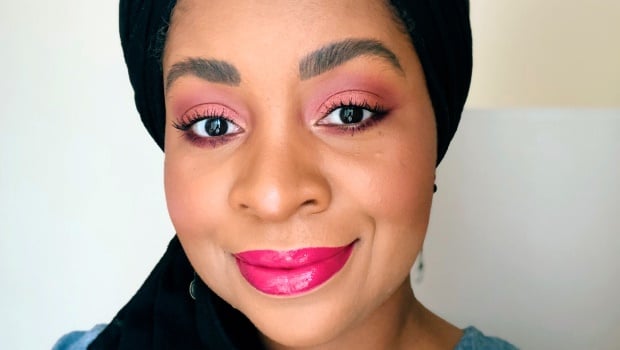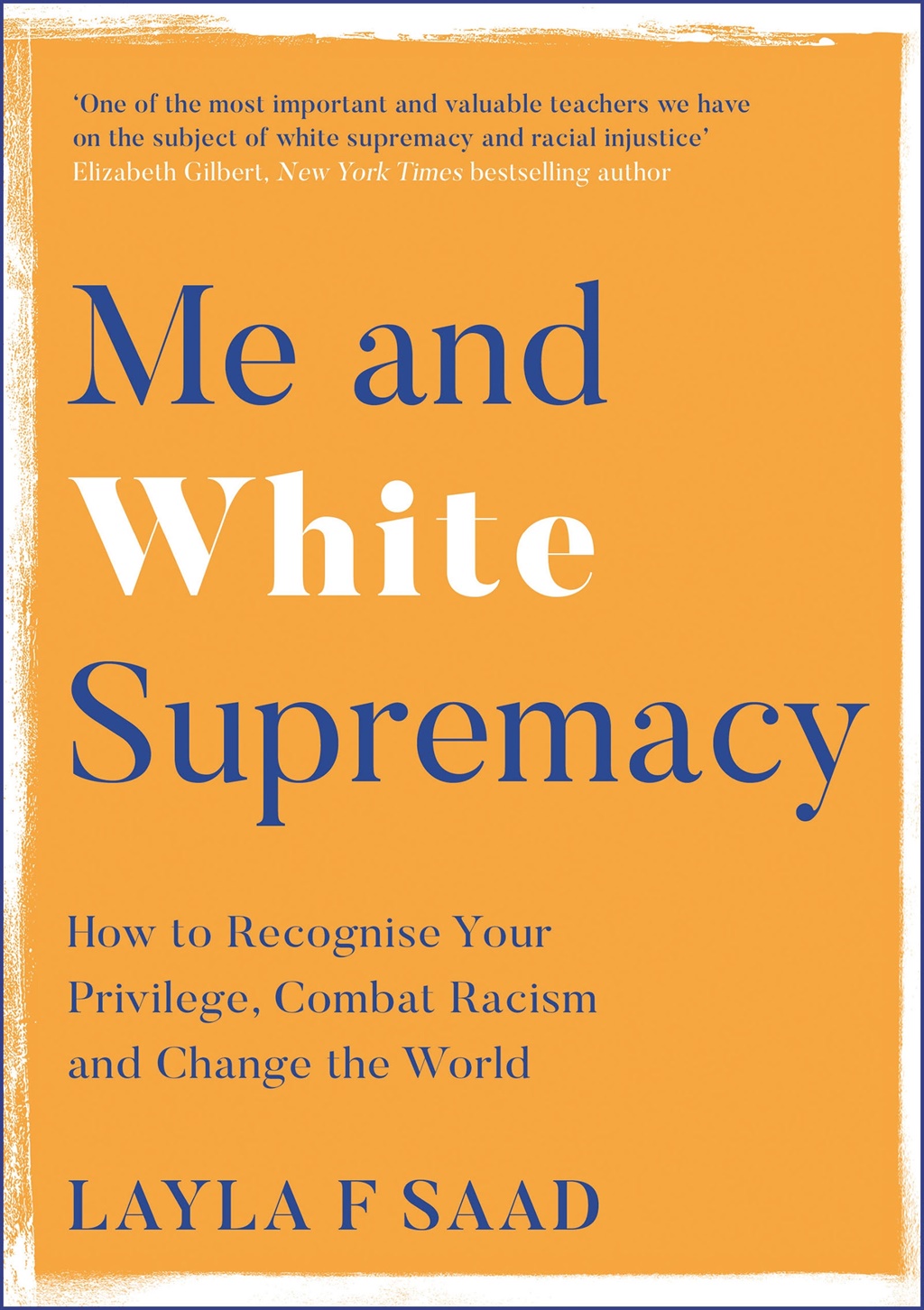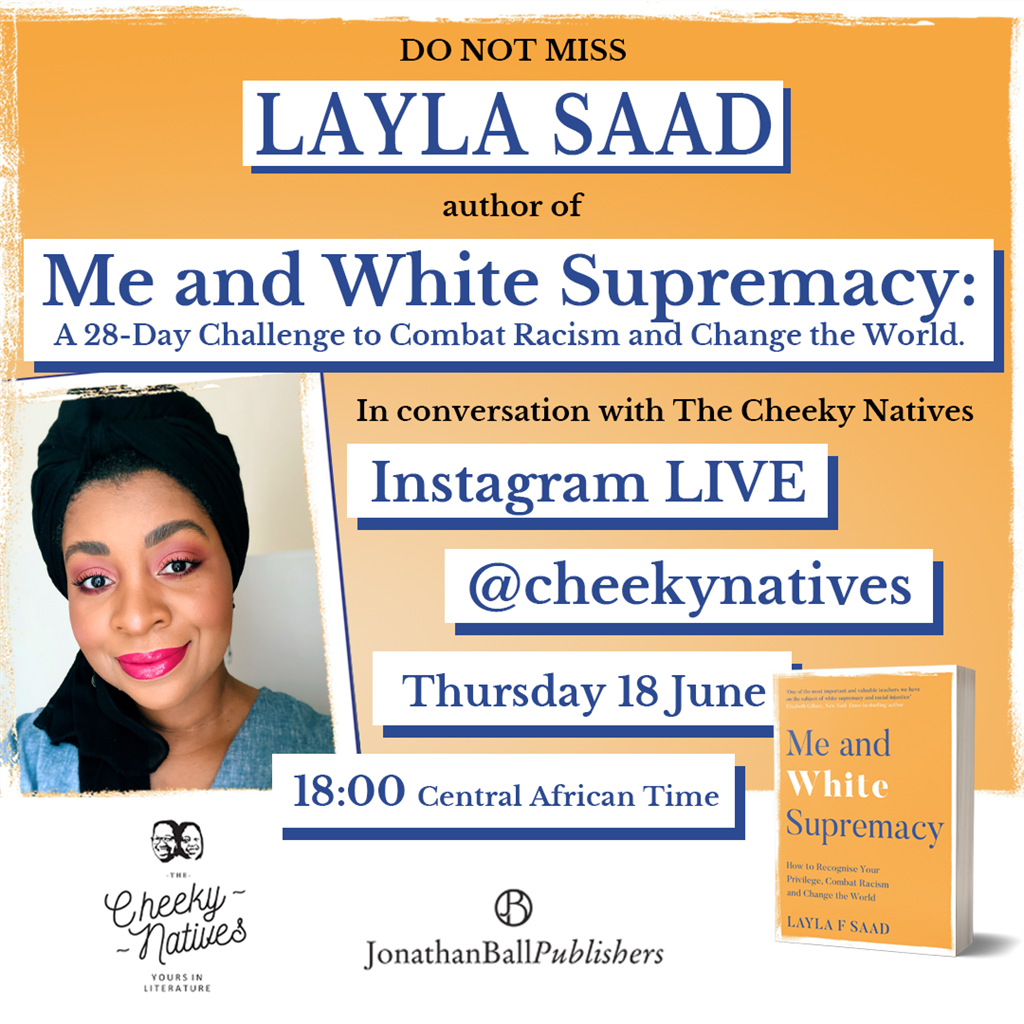
- Layla F Saad is launching a workbook born out of her viral 28-day Instagram challenge under the hashtag #MeAndWhiteSupremacy.
- On Thursday 18 June, the author will be in conversation with The Cheeky Natives podcast on Instagram LIVE at 18:00 CAT.
- Here, we share an extract from her book titled, Me and White Supremacy: Combat Racism, Change the World, and Become a Good Ancestor
For those who might still be in denial, Layla Saad unpacks what white privilege is.
What is White Privilege?
White privilege as a legislative, systemic, and cultural norm has existed for a very long time, but it was women’s studies scholar Peggy McIntosh who first coined the term white privilege in her 1988 paper “White Privilege and Male Privilege: A Personal Account of Coming to See Correspondences Through Work in Women’s Studies.” A year later, a substantial portion of that paper was excerpted and published as a paper titled “White Privilege: Unpacking the Invisible Knapsack.” The paper contains fifty examples of white privilege. McIntosh writes:
I have come to see white privilege as an invisible package of unearned assets that I can count on cashing in each day, but about which I was “meant” to remain oblivious. White privilege is like an invisible weightless knapsack of special provisions, assurances, tools, maps, guides, code books, passports, visas, clothes, compass, emergency gear, and blank checks.
White privilege describes the unearned advantages that are granted because of one’s whiteness or ability to “pass” as white. It is very important to note that white privilege is not a concept that is part of the natural order of life. In the absence of white supremacy, white privilege is meaningless.
READ MORE:‘I’m scared my boss might see my tweets, that’s why I can’t participate in Black Lives Matter’
Following advances in science such as the completion of the Human Genome Project in 2003, scientists were able to examine human ancestry through genetics. Science has proven that the concept of race is not a biological fact but rather a social concept. According to Dr. Harold P. Freeman, who has studied biology and race, “If you ask what percentage of your genes is reflected in your external appearance, the basis by which we talk about race, the answer seems to be in the range of .01 percent. This is a very, very minimal reflection of your genetic makeup.”
What we see as observable physical differences among people of “different races” are actually just different genotype and phenotype expressions among one race — the human race. Despite our differences in skin color, hair texture, and other physical traits, genetically, you and I are largely the same. However, because race is a deeply held social construct and because of the existence of white supremacy, you and I are not treated the same. You hold white privilege. I do not. And that makes a world of difference. Race is a social concept, but that does not make it imaginary when it comes to the very real consequences that it has for BIPOC in their daily lives in the presence of white supremacy.
How do we know that white privilege is real? There are many who believe that the concept of white privilege is just a liberal idea used to make white people feel bad about themselves. These are people who would argue that in today’s world, where things like chattel slavery of African people, race-based discrimination in employment, and race-based school segregation are all illegal, there is no basis for the idea of white privilege. That though white people have had privileges in the past, they no longer do now (with some even arguing that they are the ones who are now the oppressed and marginalised minority group!).
READ MORE: How to be an ally to the Black Lives Matter movement and books to read about injustice, inequality
But legal changes in civil rights, though extremely important, do not change the deeply held social construct that there are biologically different races and that one race is superior to the others. And as you will see throughout this book, the belief in this social construct plays out at the unconscious level, affecting thoughts and behaviours that have consequences in both the personal and public realms.
As a young Black girl growing up in the U.K., I was made aware of white privilege at a very early age. I can recall being around seven years old when my mother sat me down to talk about white privilege, or rather my lack of it. She said to me, “Because you are Black, because you are Muslim, and because you are a girl, you are going to have to work three times as hard as everyone else around you to get ahead. You have these three things working against you.”
My mother was not talking about my race, religion, and gender being inherently flawed, but rather she was pointing out to me that in a racist and patriarchal society, I would be treated differently. I would not be rewarded the same for the same effort. And she wanted me to know that though this was not fair or right, it was (and still is), sadly, the way things were.
I saw this truth play out at my schools, where I was one of a handful of children of colour. Though some of my primary school teachers understood that they were not supposed to treat me differently from the other children in my class, they still often did, not from a place of malice or intentional racism but because of their own white supremacist conditioning that unconsciously told them my skin colour made me less valuable than my classmates. Though I was usually one of the top students in the class, as well as one of the most well behaved, I often felt overlooked and ignored by my teachers. Though I worked hard to stand out, as my mother had taught me, I often felt invisible to the teacher and less nurtured than the other students. Meanwhile, my white classmates were unconsciously given the privilege of being treated as “normal” and more worthy of the teachers’ time, attention, and caring.
It is important to understand that white privilege is separate from but can intersect with class privilege, gender privilege, sexuality privilege, age privilege, able-bodied privilege, or any other type of privilege. So for example, a person can be a woman but still have white privilege. Not having male privilege does not cancel out one’s white privilege. A person can lack economic privilege but still have white privilege. Not having wealth does not cancel out white privilege. A person can be gay but still have white privilege. Not having straight privilege does not cancel out white privilege. Lastly, having white privilege does not cancel out one’s other marginalised identities, and having white privilege with other privileged identities (e.g., cis-gender male, straight, able-bodied, etc.) adds to the amount of overall privilege that you hold.
Me and White Supremacy: Combat Racism, Change the World, and Become a Good Ancestor by Layla Saad is published by Quercus and distributed in SA by Jonathan Ball Publishers. R355.00
Extract and images provided by Jonathan Ball Publishers.
Compiled by Afika Jadezweni
Follow us on social media: Facebook, Twitter, Instagram
Sign up to W24's newsletters so you don't miss out on any of our stories and giveaways.




 Publications
Publications
 Partners
Partners
















